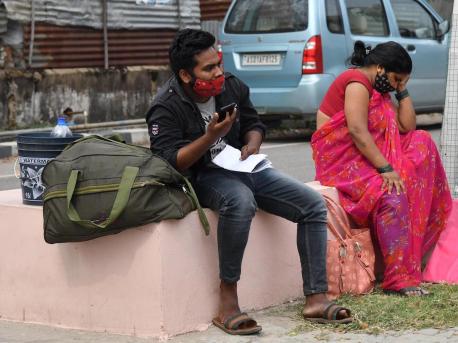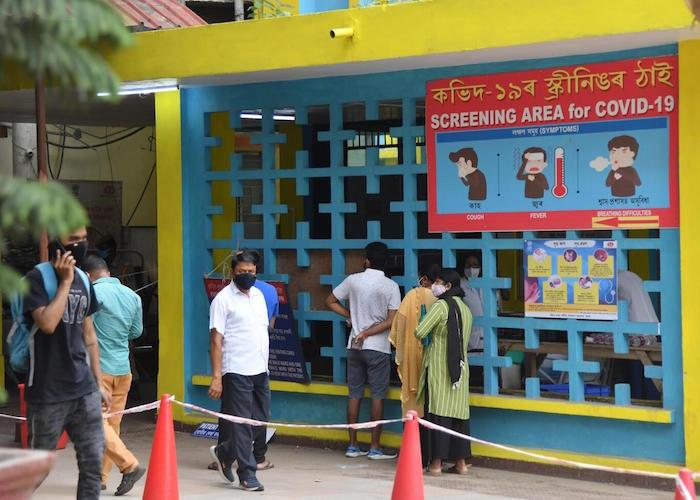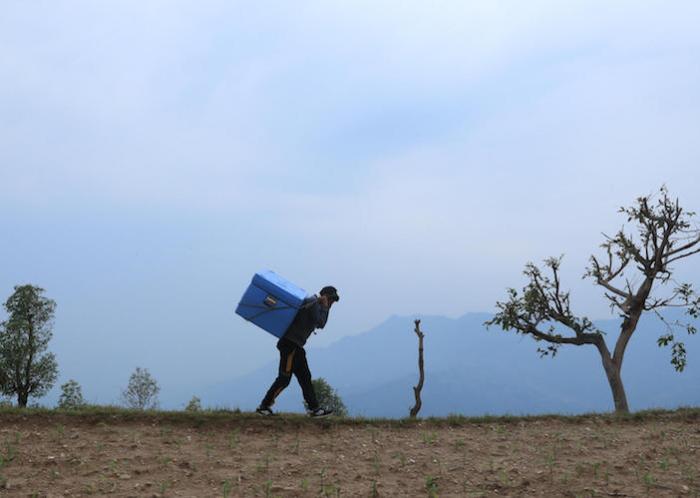
How to End a Pandemic? Vaccinate the World.
As long as the coronavirus is still spreading, the whole world is in danger. UNICEF is working with COVAX to deliver 2 billion COVID-19 vaccine doses equitably.
Even as India's COVID-19 infections and deaths maintain record daily highs, eased restrictions and rising vaccination rates in the United States have given many the sense that the pandemic is best viewed in the rearview mirror.
But viruses respect no borders and by their nature mutate: as long as COVID-19 is being passed from person to person anywhere in the world, the risk remains that a more easily transmitted, vaccine-resistant strain will emerge, opening yet another grim chapter in the global pandemic.
On May 10, 2021, a World Health Organization (WHO) official announced the reclassification of a highly contagious COVID-19 variant as a cause for global concern.
Dr. Maria Van Kerkhove, the WHO's technical lead for COVID-19, said preliminary studies indicate the Delta variant (B.1.617) can spread more easily than the original coronavirus, and may be able to evade vaccines. Since its discovery in India in October 2020, the variant has since been detected in at least 32 countries, and 30 U.S. states.
Rapid, equitable vaccine distribution is vital to stop the spread of the coronavirus

COVID-19 patients and family members line up outside Gauhati Medical College COVID Care Hospital in Kalapahar, Guwahati, India on April 30, 2021. © UNICEF/UN0455616/Boro
When low- and middle-income countries miss out on vaccines, tests and treatments, COVID-19 can spread like wildfire, increasing the odds that new variants will emerge. "Over the past few months, we have repeatedly expressed our deep concern about the inequitable distribution of COVID-19 vaccines," UNICEF Executive Director Henrietta Fore warned on April 26, 2021. “This is not only unfair — it is also unwise, because a threat anywhere is a threat everywhere, especially with the worrying rise in variants."
High- and upper-middle-income countries represent 53 percent of the world's population, but have received 83 percent of the world's COVID-19 vaccines. Low and lower-middle-income countries, in contrast, make up 47 percent of the world's population but have received only 17 percent of the world's vaccines.
Lower-income countries make up 47 percent of the world's population but have received only 17 percent of the world's COVID-19 vaccines
The spread of variants, increased social mixing, the relaxation of public health and social measures and inequitable vaccination are all driving #COVID19 transmission. Therefore, we need to use every tool at our disposal to drive transmission down, right now. pic.twitter.com/47wje5w5LO
— Tedros Adhanom Ghebreyesus (@DrTedros) May 10, 2021
"Globally, we are still in a perilous situation," WHO Director-General Tedros Adhanom Ghebreyesus said on May 10. "The spread of variants, increased social mixing, the relaxation of public health and social measures and inequitable vaccination are all driving transmission.
"Yes, vaccines are reducing severe disease and death in countries that are fortunate enough to have them in sufficient quantities, and early results suggest that vaccines might also drive down transmission. But the shocking global disparity in access to vaccines remains one of the biggest risks to ending the pandemic."

On April 21, 2021, Ram Dawadi, staff at the Bhachhek Health Post in Gorkha District in north-central Nepal, carries COVID-19 vaccines to the health facility, to be used to provide the second doses to health workers and frontliners in the area. The vaccines are part of a shipment of 348,000 doses delivered to Nepal through the COVAX Facility, with UNICEF leading on procurement and supply. © UNICEF/UN0447381/Prasad Ngakhusi
UNICEF is coordinating the delivery of 1.2 billion COVID-19 vaccine doses to low- and lower-middle-income countries in 2021
As a key partner in the Global COVAX Facility to equitably deliver COVID-19 vaccines worldwide, UNICEF is coordinating the procurement and supply of 2 billion COVID-19 vaccine doses to more than 180 countries, including 1.2 billion doses to low- and lower-middle-income countries, in 2021. To date, COVAX has shipped over 72 million COVID-19 vaccine doses to more than 126 participating countries.
"How quickly we end the pandemic, and how many sisters and brothers we lose along the way, depends on how quickly and how fairly we vaccinate a significant proportion of the global population, and how consistently we all follow proven public health measures," said Dr. Tedros.
You can help UNICEF rush vaccines and critical lifesaving supplies to protect health workers, families and communities in India and around the world. Please donate today.
Read more about how UNICEF is helping fight India's brutal COVID-19 wave here.
Top photo: COVID-19 patients sit outside the Gauhati Medical College COVID Care Hospital in Kalapahar, Guwahati, India, where all beds are full, on April 30, 2021. © UNICEF/UN0455613/Boro. Video: Tong Su for UNICEF USA.


